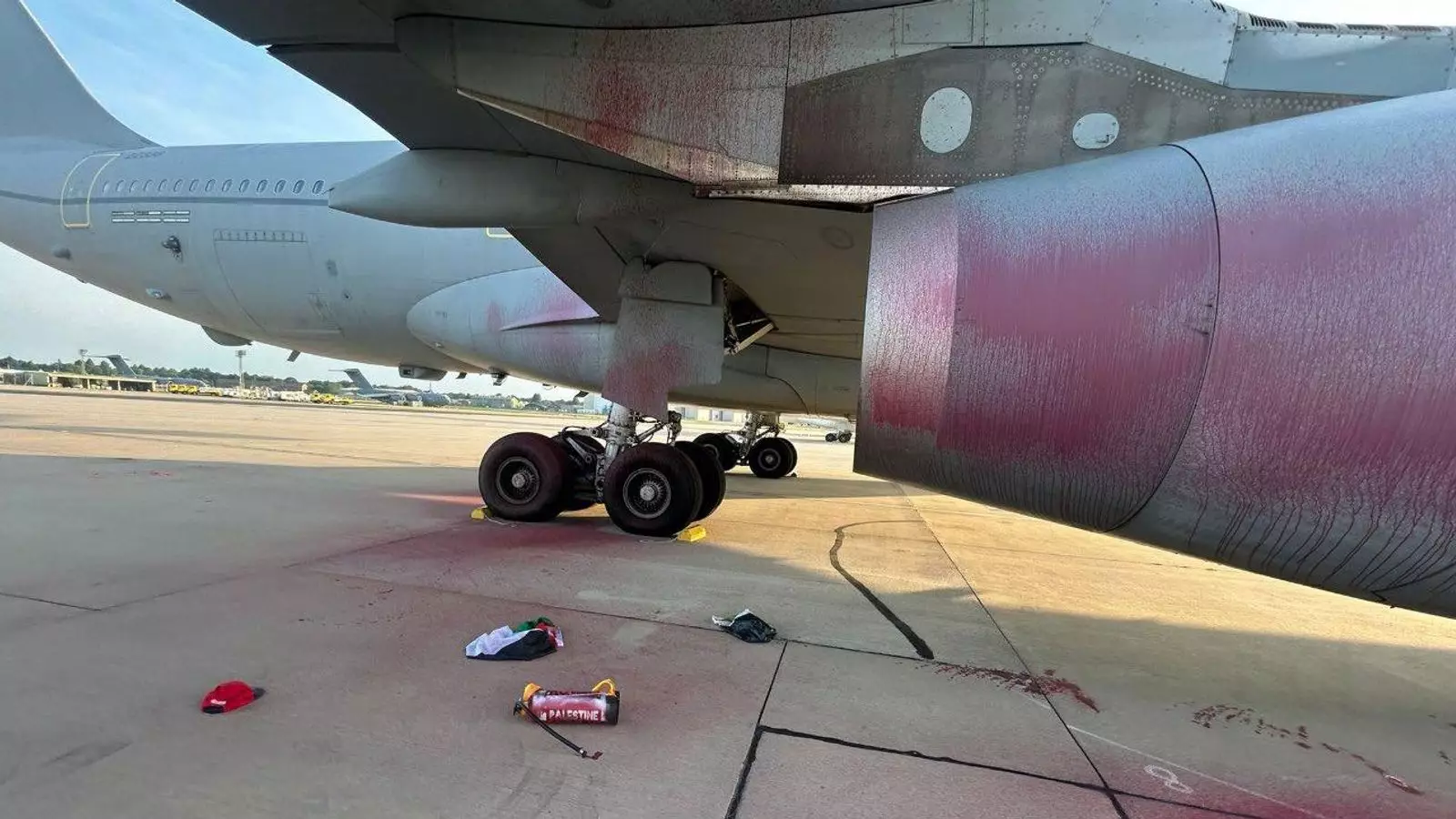The recent announcement by Home Secretary Yvette Cooper that Palestine Action will be designated a terrorist organization presents a troubling trajectory in how dissenting voices are treated in the United Kingdom. In a politically charged climate often characterized by rash responses, Cooper labeled the group’s recent actions at RAF Brize Norton as “the latest in a long history of unacceptable criminal damage,” effectively branding them not just as activists but as enemies of the state. Such a drastic measure suggests that the government is more concerned with maintaining the status quo than facilitating meaningful dialogue on pressing international issues.
Palestine Action, a group that advocates for Palestinian rights through direct action, has garnered both support and scorn. Following a recent incident where activists infiltrated the military base to raise awareness about their cause, the government’s reaction appears to be a disproportionate response to relatively benign forms of protest. The group’s act of vandalism—which they filmed and distributed as part of their activism—has, according to the government, inflicted “millions of pounds in damages.” However, it raises the question: is this level of damage really comparable to the broader human consequences of military operations, particularly those that impact Palestine?
The Right to Protest Versus State Control
At the core of this proscription debate lies a fundamental liberal tenet—the right to protest. While Cooper has asserted that peaceful protest will remain protected, the chilling effect of labeling an activist group as terrorists cannot be overstated. When the state uses such inflammatory terminology, it creates an environment ripe for repression. The implications of this decision extend beyond mere legal ramifications; it fosters an atmosphere of fear where individuals are less likely to openly advocate for causes deemed contentious or untouchable.
Moreover, by focusing solely on the means through which Palestine Action expresses its grievances, the government risks ignoring the larger context of their activism—grievances and injustices faced by Palestinian people. To dismiss their actions as mere criminality is to sidestep the underlying issues that drive such fervent activism in the first place. In doing so, the state not only marginalizes dissenters but also perpetuates a cycle of unease and conflict surrounding an already challenging narrative.
A Call for Rational Discourse
Critics of the proscription, including Saeed Taji Farouky from Palestine Action, have articulated that the government’s reaction is “completely irrational” and indicative of a “knee-jerk” response to a perceived humiliation. Instead of engaging with the views and concerns raised by activists, the Home Office appears more eager to suppress dissenting voices through punitive measures. Such an approach risks alienating a segment of the population that feels passionately about international justice and humanitarian issues.
If the government truly upholds the values of democracy and free speech, it should seek to foster forums that allow for the discussion of contentious issues rather than criminalizing those who passionately advocate for their causes. The decision to move towards proscription can backfire, driving activists further underground and obstructing future dialogue around the Israel-Palestine conflict.
The Arrests and the Public’s Reaction
The fallout from this escalation in state response was palpable at the recent protest held in support of Palestine Action. Thirteen arrests, including charges ranging from assault to public order offences, signify a troubling trend of demonizing peaceful assembly. It reflects a government more inclined to silence dissent than engage with concerned citizens. The Metropolitan Police’s assertion that they were “surrounded” during their attempts to manage the protest portrays a scenario where activism and policing collide in a volatile manner.
This incident serves as a poignant reminder of the ongoing tension between state authority and activist movements advocating for social justice. If protests are routinely met with heavy-handed policing and accusations akin to terrorism, we may witness more young people disillusioned by the very idea of protest as a legitimate means of enacting change. In a liberal democracy, such a development should be alarming.
The proscription of Palestine Action signals a dangerous precedent whereby the government prioritizes control over constructive discourse. While addressing security concerns is important, an overzealous approach may jeopardize the nation’s robust history of free speech. To truly progress, we need to engage all voices in the conversation, even if their methods appear unapologetically disruptive. Only through dialogue can we hope to move toward understanding, justice, and lasting peace.

